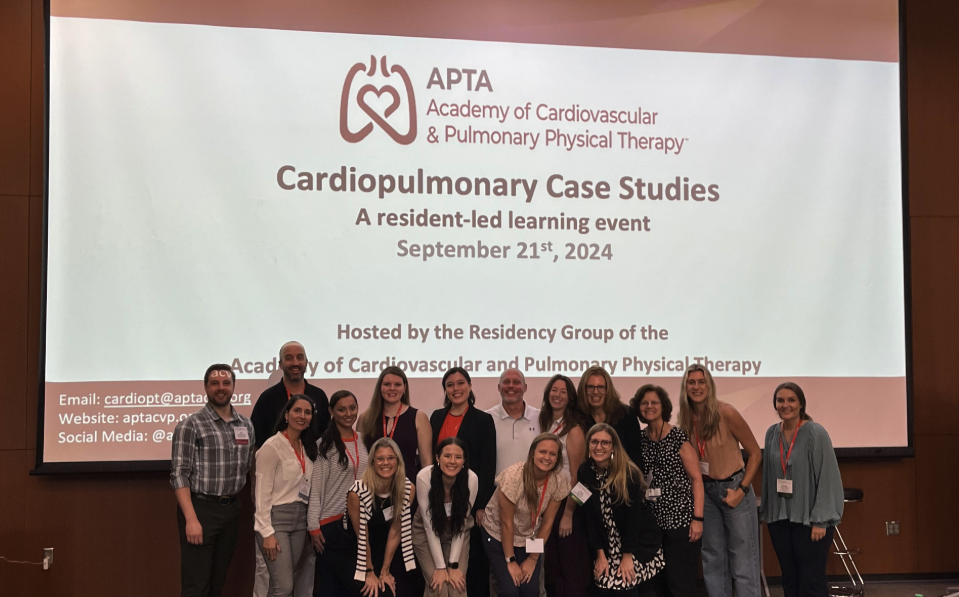ResidenciesCheck out our new residency video below to learn more about the impact of CVP Residencies: Fellowship & Residencies InformationInformation about Residencies from ABPTRFEPhysical Therapy Residency Information WebinarAccredited and Candidate Programs ListingWhat is a Cardiopulmonary Residency?A post-professional planned learning experience comprised of a curriculum encompassing the essential knowledge, skills, and responsibilities of an advanced physical therapist within cardiopulmonary physical therapy. A residency program prepares the physical therapist with the requisite knowledge and skill set needed to pass the certification examination following graduation. Who should consider Residency?
What is the advantage of doing a CV&P Residency?
Where are the Cardiovascular and Pulmonary Residencies?How do you apply?Many programs utilize RF-PTCAS for their admission process. For programs that do not participate in RF-PTCAS, please contact them directly for their admission process. What should you consider to determine the right program for you?
Previous residents and their statements about residency:"I 110% recommend completing a residency in CVP PT. I had exceptional mentorship and support from the faculty and the residency director. My clinical skills and theoretical knowledge were accelerated in the area of cardiovascular and pulmonary physical therapy. Clinicians who have been practicing for many years were able to share clinical expertise and tips which allowed me to grow in my own practice." Chané van Straaten PT, DPT “One of the most rewarding years of my life.” “This is allowing me to dive deeper into this specialty and gain advanced clinical knowledge and skills with high complexity patients in multiple ICUs. Mentorship was also an important component for me, especially as a new grad” Cydney Nagridge, DPT “It’s possible...and it’s worth it.” Crystal Gluch, DPT "These skills will help me to develop plans of care for these complex patients to help them optimize their function in everyday life and work toward their personal goals." Hayleigh Paljieg, DPT |

